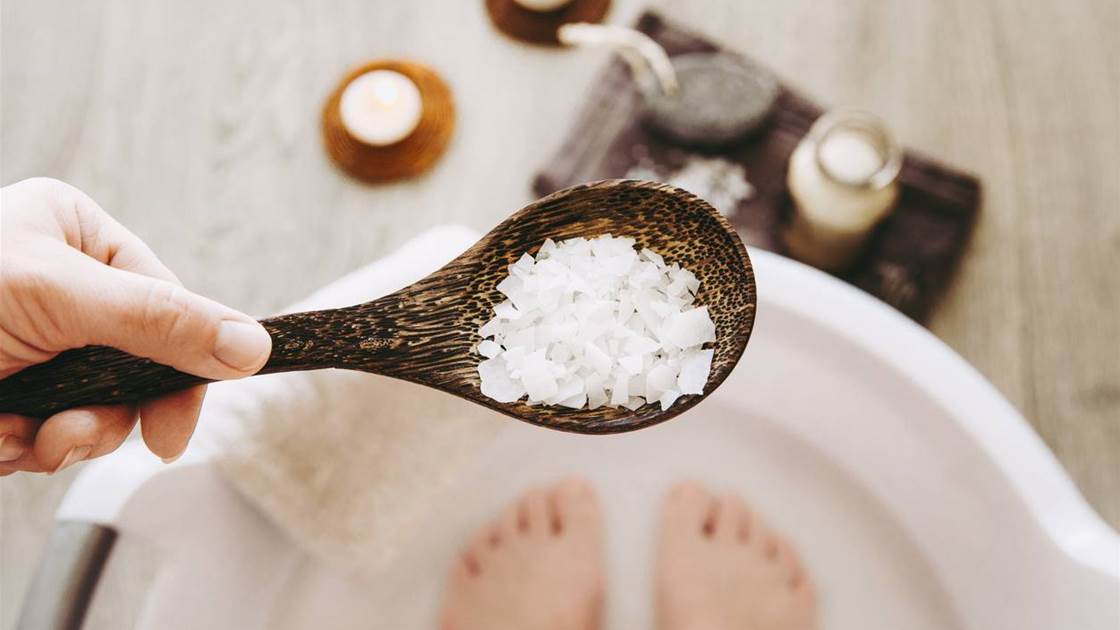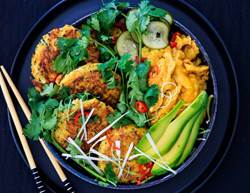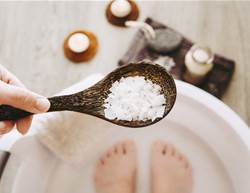We all know that exercise is vital in disease prevention and maintaining exuberant health and how we recover from exercise is equally important.
Not only does it help us overcome fatigue, muscle soreness, and injury, putting in place a recovery plan has been shown to positively affect subsequent exercise performance. Pay particular attention to what you eat and drink alongside rest, relaxation, massage, and hydrotherapy e.g. hot or cold water immersions or showers or a hot bath with 1-2 cups of magnesium sulphate also known as Epsom salts.
Eat wholefoods after exercise
A good nutritional recovery plan replenishes fuel or glycogen stores used during exercise, delivers protein to assist with muscle repair and synthesis, and restores fluid and electrolytes lost in sweating.
Carbohydrates eaten at 30-minute intervals immediately after exercise over a couple of hours is more effective at replenishing muscle glycogen compared to one large meal. Research has shown that the co-ingestion of protein with a smaller amount of carbohydrates has a similar if not more optimal effect. Replenish your muscles with a boiled egg, yoghurt, cheese, and fresh fruit or meat, pumpkin and greens or why not try a smoothie like this recipe from my book, I am Food – Eating Your Way To Health:
- ¾ cup milk of choice
- 1 small frozen banana
- 1 cup berries or 1 cup chopped pear
- 1 scoop of high-quality protein powder
- For extra flavour and remedial goodness, add cinnamon or turmeric powders, raw cacao powder, and a non-sugar, natural sweetener of choice.
Blend well and drink.
Hydrate
Drink plenty of fluid both during and after exercise, especially on a hot day. Volume replacement during recovery should exceed that lost during exercise to allow for ongoing water loss; however, ingestion of large volumes of plain water results in diuresis, preventing longer-term maintenance of water balance. The addition of electrolytes to water optimises hydration.
For a Thirst-Quenching Electrolyte Drink try this recipe:
- 1/4 teaspoon natural salt
- 1/4 cup fresh fruit juice
- 1/4 cup fresh lemon juice
- 1 1/2 cups coconut water
- 2 cups cold water
The addition of a high-quality magnesium powder will also aid hydration.
Add ingredients to a bottle, shake vigorously, and drink.
Not all inflammation is equal
Inflammation is a vital part of the body's immune response. It is the body's attempt to heal itself after an injury; defend itself against viruses and bacteria, and repair damaged tissue. However, chronic inflammation can lead to serious health issues associated with cardiovascular disease, diabetes, and metabolic syndrome.
The benefits of moderate exercise on general inflammation are well documented. One moderate exercise session of 20 minutes can have a cellular response that may help suppress inflammation in the body. But prolonged exercise may increase inflammation especially if you have preexisting inflammatory disease. Your level of fitness, age, and general lifestyle may also impact your general inflammatory response.
Reduce inflammation naturally
Curcumin, the active compound of turmeric, taken as a supplement, may help reduce repetitive trauma, inflammation, and pain that exercise can cause. Research has shown that 1 gram of curcumin daily for 8 weeks helps manage this kind of inflammation. You can also enjoy turmeric in a smoothie, tea or meal. Enjoy turmeric blends with black pepper as this helps enhance the absorption of curcumin by 2000%. Seek advice from your health care practitioner before implementing any supplements.
Keen to get walking, lose weight, and reset your health? Sign up for the Prevention Virtual Walk on October 11!
References
(1) https://health.ucsd.edu/news/releases/Pages/2017-01-12-exercise-can-act-as-anti-inflammatory.aspx
(2) https://www.ncbi.nlm.nih.gov/pmc/articles/PMC3586919/
(3) https://pubmed.ncbi.nlm.nih.gov/28126906/
(4) https://www.ncbi.nlm.nih.gov/pmc/articles/PMC5003001/
(5) https://www.sportsdietitians.com.au/wp-content/uploads/2015/04/120628-Recovery_SD-version.pdf






.jpg&h=193&w=250&c=1&s=1)
